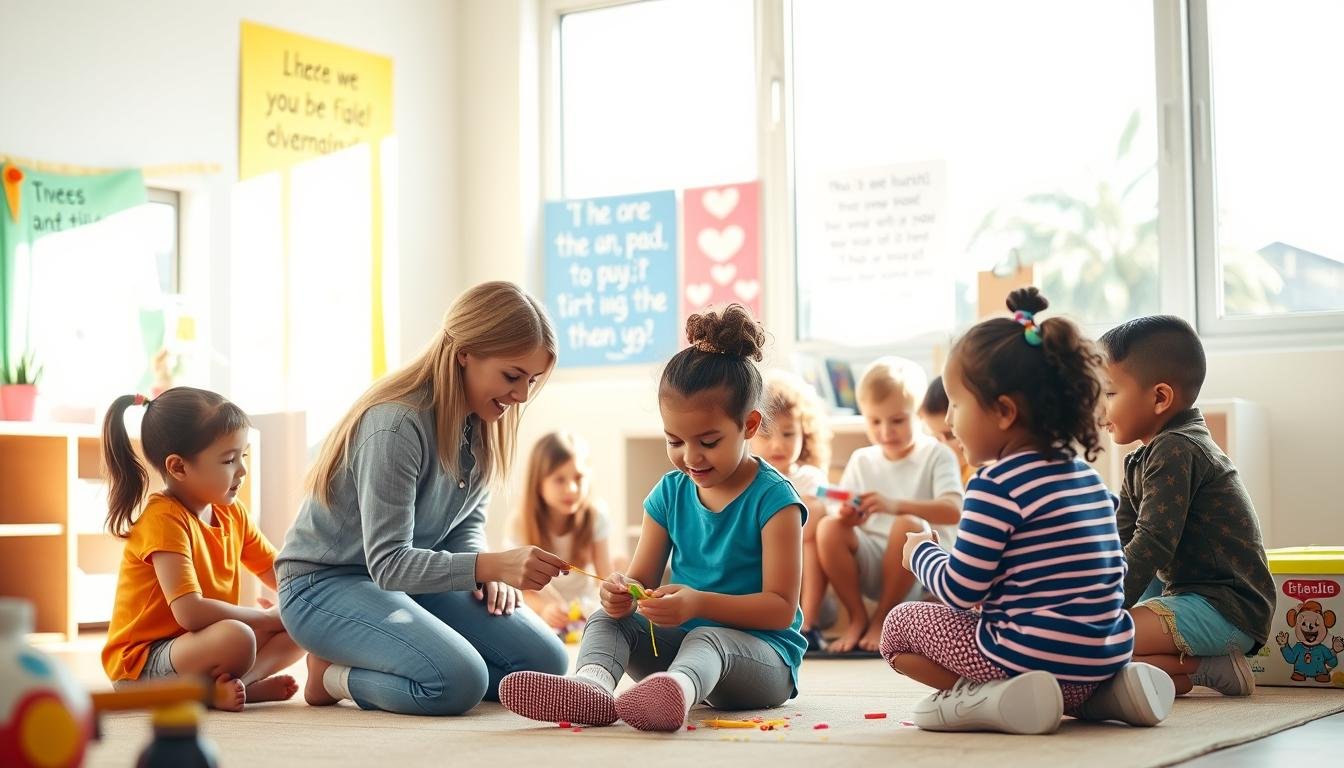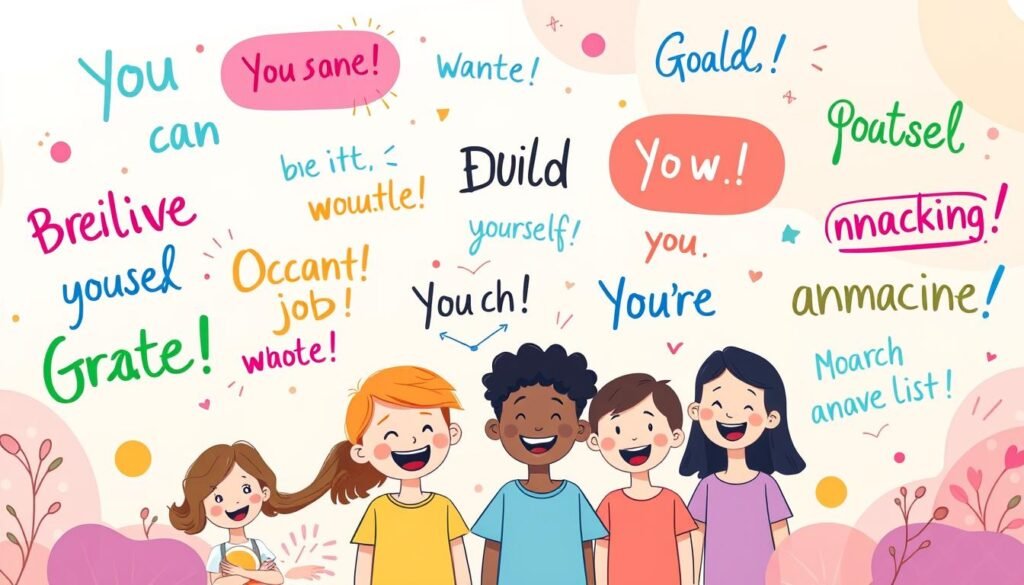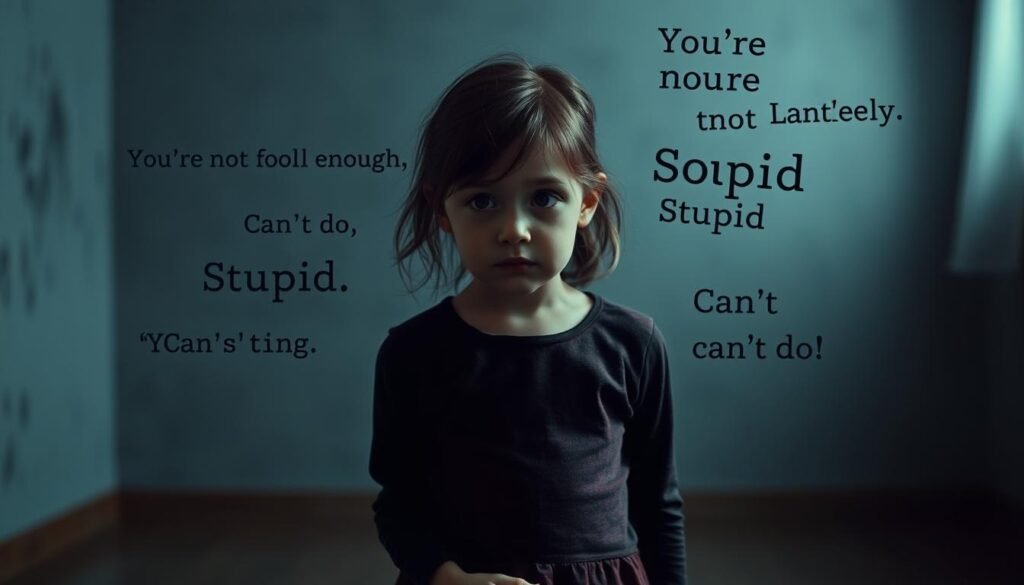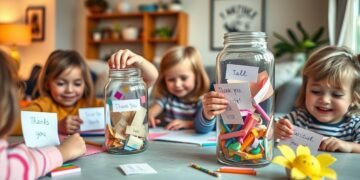Every parent wants their child to grow up confident and resilient. But did you know the way you speak to them plays a huge role? Research by Carol Dweck shows that fostering a growth mindset can boost academic and emotional success.
With rising youth mental health challenges—like a 42% increase in self-harm emergency visits—supportive language matters more than ever. Tools like Slumberkins help reinforce emotional learning, but daily interactions make the biggest impact.
The right phrases build intrinsic motivation. They turn struggles into learning moments. So, how can you empower kids with words that last a lifetime?
Key Takeaways
- Supportive language strengthens emotional and academic growth.
- A growth mindset helps kids embrace challenges.
- Mental health trends highlight the need for mindful communication.
- Resources like Slumberkins supplement daily encouragement.
- Intrinsic motivation stems from consistent, uplifting interactions.
The Importance of Positive Encouragement for Children
Science proves that language directly impacts brain development. A Bloomsburg University study found athletes performed 17% better when coaches used supportive words. This isn’t just about praise—it’s about rewiring neural pathways.
Why Words Matter in Child Development
Daniel Goleman’s research shows language activates creative regions of the brain. Phrases like “You worked hard!” boost resilience more than “You’re so smart!” This taps into neuroplasticity—the brain’s ability to adapt through learning.
Carol Dweck’s growth mindset theory aligns here. Kids praised for effort (not talent) embrace challenges. A BBC study tracked students for 5 years—those with intrinsic motivation excelled long-term.
The Science Behind Positive Reinforcement
Montessori education emphasizes process-focused validation. Instead of rewards, teachers highlight perseverance. This builds internal drive, a stark contrast to extrinsic motivators like stickers or grades.
Recent data underscores urgency: pediatric ER visits rose 14% during the pandemic. Supportive words aren’t just helpful—they’re a lifeline for emotional health.
Building a Growth Mindset in Kids
Stanford research reveals how small shifts in language transform learning. A growth mindset—the belief that abilities develop through effort—can turn struggles into stepping stones. Kids who embrace this outlook outperform peers by 23% in GPA, according to Yeager’s resilience studies.
Fixed vs. Growth Mindset: Key Differences
Praising traits like “You’re so smart” fosters a fixed mindset, where kids avoid challenges to protect their image. Instead, phrases like “You worked hard!” tie success to perseverance. Montessori schools exemplify this by letting students lead activities, reinforcing self-worth through action.
The power of “yet” is transformative. Saying “You can’t do multiplication yet” signals that mistakes are part of progress. Dweck’s studies show this approach boosts motivation and long-term achievement.
How Encouragement Shapes Resilience
Cooperative board games like “Pandemic” teach kids to problem-solve as a team, turning setbacks into learning moments. Real-world tests—like adapting to remote school—show how resilience stems from embracing challenges.
During the pandemic, students who viewed obstacles as temporary thrived. This mirrors Yeager’s findings: a growth mindset isn’t just academic—it’s a life skill.
Effective Phrases to Encourage Children
Specific language shapes how kids view challenges and success. The right phrases reinforce effort, highlight potential, and spark curiosity. Unlike generic praise, research-backed encouraging words build lasting confidence.
Words That Reinforce Effort
Focus on actions, not traits. Instead of “You’re so smart,” try:
- “You tried three strategies—that’s creative problem-solving!”
- “I saw how carefully you lined up those blocks.”
Slumberkins’ characters, like the persistent Fox, model this. Kids learn that practice—not perfection—matters.
Phrases That Highlight Potential
Reframe mistakes as growth opportunities. Say:
- “Your brain grows when you tackle hard things.”
- “This challenge will help you learn something new.”
Teachers often use phrases like, “You showed great patience today.” This ties behavior to identity, fostering intrinsic motivation.
Encouraging Curiosity and Learning
Spark exploration with open-ended prompts:
- “What if we test your idea another way?”
- “I wonder what happens when you mix those colors.”
These phrases turn daily interactions into learning adventures. They’re simple but powerful tools.
Words and Phrases to Avoid
The way we speak to kids can unintentionally reinforce limiting beliefs. Research shows that certain phrases trigger pressure or create a fixed mindset, despite good intentions. Recognizing these linguistic traps helps protect self-esteem and emotional growth.
Common Pitfalls in Praise
Generic compliments like “You’re so smart” backfire by tying worth to innate traits. Psychologists call this label anxiety—kids avoid challenges to protect their “smart” identity. Source 1’s studies reveal overpraised children show 23% less persistence in difficult tasks.
Five phrases to reconsider:
- “Don’t worry” – Dismisses valid emotions
- “Shake it off” – Invalidates struggles
- “You’re the best!” – Sets unrealistic standards
- “That was easy, right?” – Minimizes effort
- “I’ll do it for you” – Undermines capability
Source 2 warns against disproportionate rewards like treats for basic tasks. This conditions kids to expect external validation rather than internal motivation.
How Negative Language Impacts Confidence
Dismissive words activate stress responses in the brain, per UCLA neuroscience research. Phrases like “Stop crying” teach kids to suppress emotions, correlating with lower self-esteem in adolescence.
Suicide prevention guidelines suggest alternatives:
- Instead of “Get over it” → “Let’s solve this together”
- Replace “Why can’t you…” → “What’s challenging you?”
Source 3’s resilience studies found that children hearing process-focused language (e.g., “Mistakes help us learn”) attempted harder problems 40% more often. The right words build mental frameworks for lifelong confidence.
Daily Practices for Positive Encouragement
Small daily habits create lasting impacts on a child’s self-worth. Consistency turns fleeting praise into lifelong resilience. Start with simple rituals that align with natural routines.
Incorporating Encouragement into Routines
Morning and bedtime moments are golden opportunities. Try these research-backed practices:
- Goal-setting chats: “What’s one thing you’ll try today?” builds intentionality.
- Bedtime reflection: “What made you proud today?” reinforces progress.
- Growth mindset boards: Track efforts like “I solved a tough math problem” visually.
Slumberkins’ “Snuggler” characters can join bedtime routines, modeling emotional vocabulary like, “Today felt hard, but I kept going.”
Age-Appropriate Strategies
Tailor methods to developmental stages:
- Toddlers: Use sticker charts for small wins like sharing toys.
- Teenagers: Replace stickers with journaling prompts (“How did you overcome a challenge?”).
For sibling conflicts, scripted phrases help: “Let’s find a solution together” shifts focus from blame to teamwork. Source 2’s educator tips highlight that affirmations work best when tied to specific actions.
Encouraging Play and Imagination
Playtime isn’t just fun—it’s a critical tool for cognitive and emotional development. Research shows that unstructured play builds problem-solving skills, while imaginative scenarios foster creativity. From cooperative games to open-ended toys, the right tools turn leisure into learning.
Toys and Activities That Foster Growth
Curated toys can amplify learning outcomes. Source 1’s studies highlight these research-backed options:
- Magna-Tiles: Spark spatial reasoning and teamwork.
- KiwiCo Crates: Hands-on STEM projects that nurture curiosity.
- Cooperative board games: Teach conflict resolution (e.g., “Hoot Owl Hoot!”).
Montessori’s “prepared environment” principles emphasize student-led exploration. Activities like gardening or building forts align with Source 3’s findings on imagination and independence.
The Role of Play in Emotional Development
Dramatic play—like pretending to run a café—builds empathy by letting kids step into others’ roles. Slumberkins plush toys, such as the empathetic Sloth, model emotional vocabulary during these scenarios.
Screen time vs. hands-on play? A 2022 UCLA study found children using open-ended toys scored 15% higher in creativity tests. Real-world interactions, like Montessori “going out” trips, reinforce social and emotional skills beyond digital limits.
Conclusion
Kindness in words shapes a child’s future. The 3:1 ratio—three supportive comments for every correction—builds confidence. Research from the Children’s Hospital Association shows proactive support reduces stress and boosts emotional growth.
Tools like Slumberkins reinforce these lessons daily. Their characters model resilience, turning challenges into chances to learn. Small moments of love and guidance add up over time.
Ready to make every word count? Download our free 50-phrase cheat sheet to start today. Remember: your words build their world.
FAQ
Why is positive reinforcement important for kids?
Positive reinforcement helps build confidence, resilience, and a love for learning. It strengthens neural pathways linked to motivation and self-worth.
What’s the difference between a fixed and growth mindset?
A fixed mindset assumes abilities are static, while a growth mindset believes skills improve with effort. Encouragement nurtures the latter.
What phrases help reinforce effort in children?
Try saying, “I see how hard you worked on this!” or “Your practice is paying off.” These highlight effort over innate talent.
How can negative language affect a child’s confidence?
Harsh or dismissive words can create self-doubt. Instead, focus on constructive feedback that guides without discouraging.
What are simple ways to encourage kids daily?
A> Praise specific actions (“You shared so kindly!”), ask open-ended questions, and celebrate small wins to foster a supportive environment.
How does play support emotional development?
A> Play builds problem-solving skills, creativity, and emotional regulation. Toys like building blocks or art supplies encourage exploration.









